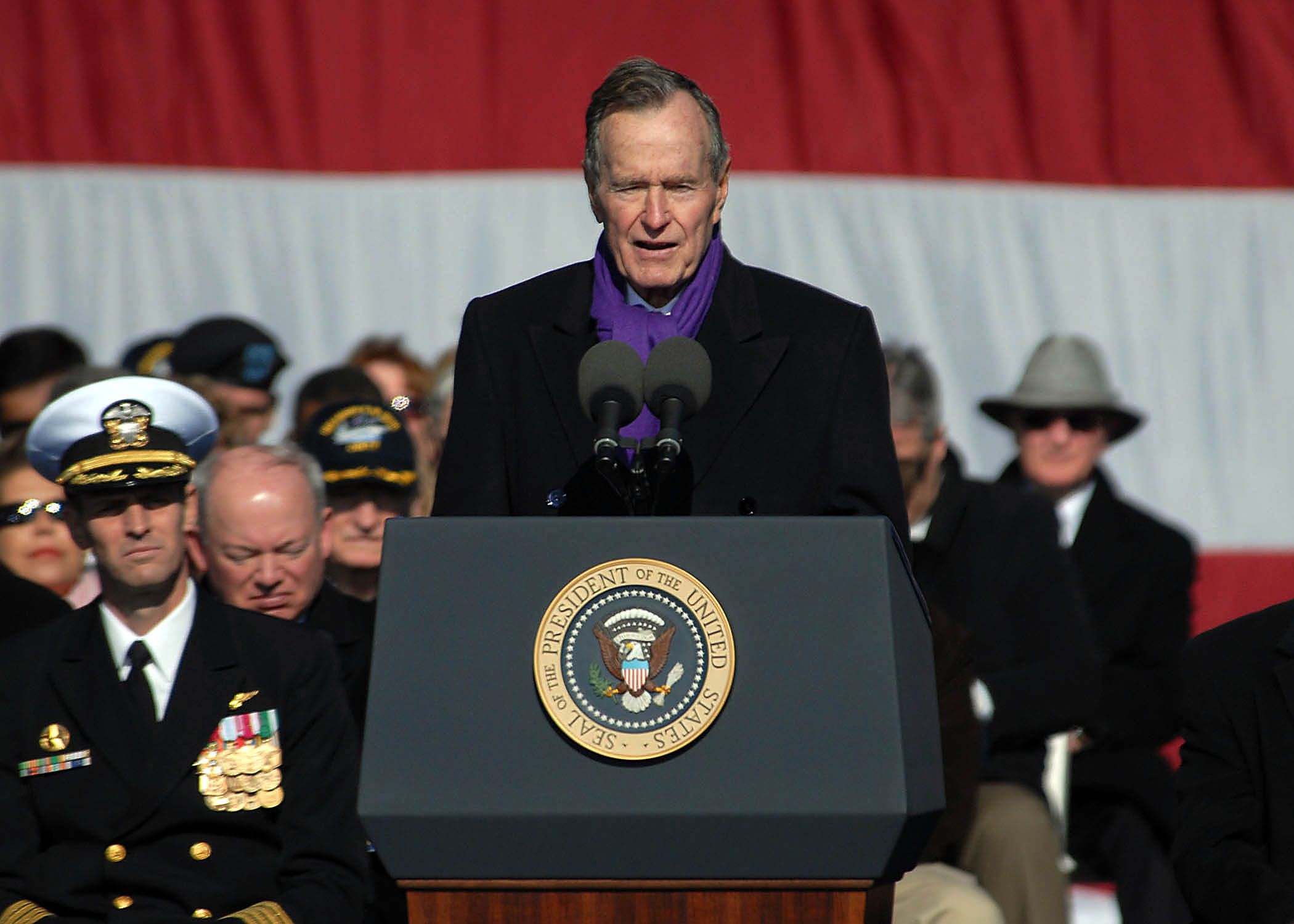Views expressed in opinion columns are the author’s own.
On Tuesday, retiring University of Maryland president Wallace Loh sent an email encouraging students “to observe a moment of silence to pay our respects to President Bush and his remarkable life of national service.”
I will not observe a moment of silence in memory of George H.W. Bush. But since universities are institutions of learning, and learning is impossible if one insists on indifference toward historical figures, I will take a moment to reflect on his life.
Bush reminds us of a bygone era in American history: a time when the president could say vague phrases like “a thousand points of light” and then replace a democratic government somewhere in the Middle East with a dictator, and disagreeing with that meant you hated the troops. But seriously, Bush, like John McCain, represented an era of bipartisan politics we should be very, very happy to leave behind.
That everyone from President Loh to Google has come together to emphasize the importance of Bush’s “service” tells you everything you need to know about “bipartisanship” and “civility” — namely, that these concepts mean nothing and serve only to discourage the questioning of corrupt authorities.
Bush was a wealthy, Yale-educated oil executive born with a silver spoon in his mouth. (The shady methods by which his parents gave him that silver spoon are for another column.) As vice president, Bush participated in the Iran-Contra affair, bringing together enemies like Iran and Israel. That is to say, the U.S. sold weapons to Iran through Israel and then illegally gave the profits to the Nicaraguan Contras, a right-wing terrorist group fighting against the left-wing, democratically elected Sandinistas.
When Bush became president, he pardoned almost everyone who had been prosecuted for the Iran-Contra affair. At the same time, he also pushed heavily for the modern American carceral state, calling for “more prisons, more jails, more courts, more prosecutors.”
Perhaps most significantly, Bush started America’s prolonged involvement in Iraq. Bush began his Iraq war by burning civilians alive, and proceeded to target civilian infrastructure. Although that war eventually ended, leaving Saddam Hussein in charge meant that the stage was set for Bush’s son to lie about weapons of mass destruction and lead us into what now seems to be a permanent occupation in the Middle East.
Nothing about this record is good or admirable. About the only truly good thing anyone has to say about George H.W. Bush is that he supported the Fair Housing and Americans with Disabilities acts, which was admittedly a good thing, but also the bare minimum.
In short, Tim Cook, Barack Obama and President Loh are wrong about Bush. He was a bad president, and in a just world, he would’ve been locked in the Hague. May God have mercy on his soul.
John-Paul Teti is a senior computer science major. He can be reached at jp@jpteti.com.



